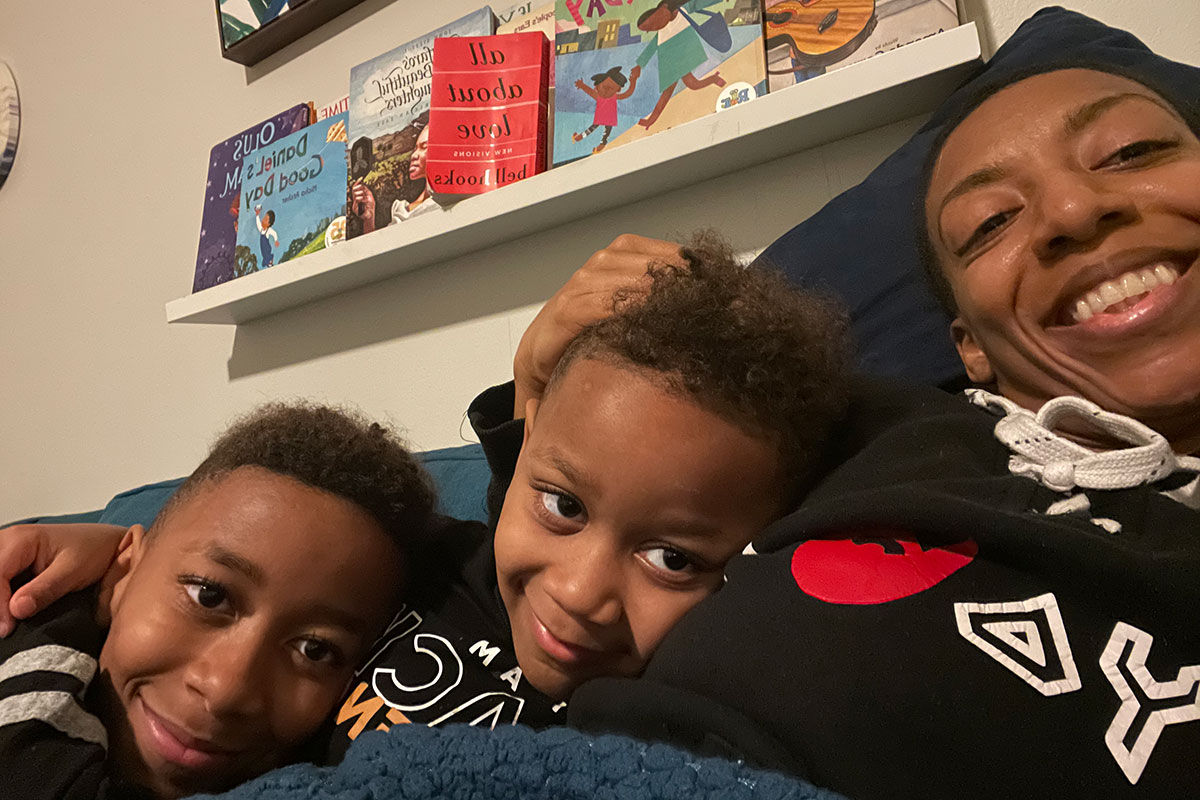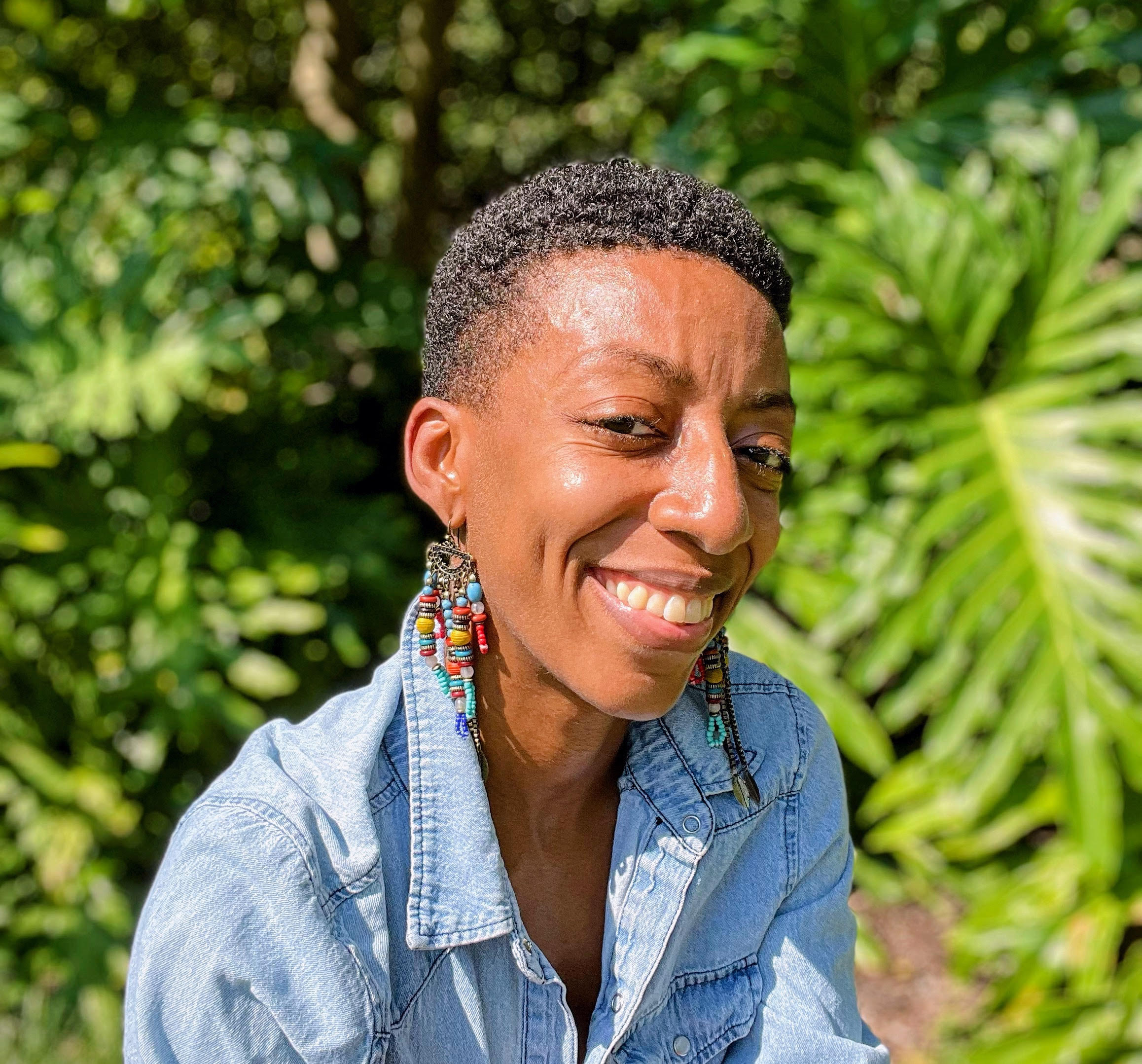I had an awakening experience in codependency group therapy several years back. “You have to ask for what you want,” the therapist said. “When we were infants, we would whine and cry in hopes of getting the attention of our caregivers, in hopes that they would predict our needs. But as adults, we can talk and express our needs, so we should.”
My ex-husband used to listen to a podcaster named Brother Diallo. I once overheard him talking about the infantilization of men—how we as women coddle men, anticipate their needs, and take on tasks like cooking and cleaning so much that some men never really learned to take care of themselves.
Since we are often mirrors of each other, I thought, what does the infantilization of women look like?
Raising Emotionally Intelligent, Self-aware Communicators
It’s a fantasy to think that women will never have to use our words; That we can pout, tantrum and silence-treatment our way into a loving and psychic relationship. Now, I’m not knocking anticipating each other’s needs as acts of love and attentiveness. I think it’s a beautiful thing, but not to the point where it becomes a handicap. Not to the point where it angers you if this “mind-reading magic” is not performed.
When I have life-changing discoveries like this, I often try to relate them to how this new knowledge should shift my parenting. I recall telling a friend that if I had a daughter, I would definitely teach her to be aware of and communicate her needs. I would teach her to get to know her likes and dislikes and to revise them when necessary in hopes that she will stay in tune with herself.
While having this conversation with my sis Latasha Allston, she pushed back on my analysis. She doesn’t think men do a good job of this, either. Men also don’t know their needs or communicate them well, but because they often have more attentive partners they don’t need to do this well to get their needs met. (I love her brain!)
Sometimes, it be yo’ own self perpetuating the very thing you wish to destroy.

I am grateful for her pushback. It brought my own patriarchal thinking to the forefront: that boys don’t need self-awareness and communication-support to navigate healthy relationships. This makes no logical sense, but essentially that’s what my original analysis boiled down to.
Boy children need just as much guidance in self-study and healthy communication of needs as girl children. In fact, raising men who are great communicators and are self-aware is not only beneficial to them, but will likely decrease the emotional labor their partners will be responsible for. The work of revolution begins in our minds and in the minds of our children. Raising emotionally intelligent, self-aware good communicators should be my goal as a parent regardless of my children’s gender.
Preparing boys to do their own emotional labor—the labor of understanding their own emotions and motivations—will one day save their partners countless hours of detective work. It will free up their partner’s time to discover their own desires and build their own self-awareness, but unfortunately, awareness isn’t where it ends. Being self-aware with poor communication skills will get you the same results as having a lack of awareness of your needs.
Finding the Courage to Make Big Asks
Personally, I know myself very well. But recently, I have become aware of this pattern of being afraid to ask for what I really want or need because of my fear of rejection. It’s like the moment I attempt to make a request, it’s like a rock gets stuck in my throat and the request won’t come out.
I think this is why I enjoyed the experience of an empath caring for me so much. It was so good to be read! It felt so good to be rescued from the responsibility of making a request. It was such a relief not to have to conjure the courage to use my own words. But even with that arrangement, I was experiencing uncommunicated and unmet needs.
So, in this case, being aware of my needs only served as a mechanism for determining when my needs were not being met. It didn’t lead to requests, just disappointment. At first, my limitation in asking for what I wanted was due to a lack of knowledge. But now, it is rooted in a lack of belief.
It is rooted in the fear that the answer will always be no. It is rooted in a false sense of security that I can protect myself from the word no, by never asking the question, when in fact, the only thing I am protecting myself from is a potential yes.

Although I have had periods of initiating courageous asks, this started in childhood. I remember saying that I wasn’t going to ask my parents about certain events and things because I knew the answer would be no. I started limiting my possibilities so young and now in adulthood, I have to address this fear. In reality, I have to address this belief that I can’t have what I request.
I must address the false belief that one “no” can’t stand in the way of the limitless yeses that are available to me; that settling and being OK with never getting what I need as long as it protects me from the brief sting of rejection, is not how I wish to live my life.
I want to be free from this so bad. But how? How do I cultivate an unwavering belief in my ability to make my wildest dreams a reality? How do I find the courage to make big asks? How do I conjure the courage to face all the little nos along my journey to the BIG yeses? How do I stop preparing for “no” with plans B and C?
I remind myself more now of what’s at risk if I never make requests of the abundant source.
I will continue to remind myself of all that will die inside of me at the hands of the fear of rejection.
This MFP Voices essay does not necessarily represent the views of the Mississippi Journalism and Education Group, the Mississippi Free Press, its staff or board members. To submit an opinion for the MFP Voices section, send up to 1,200 words and sources fact-checking the included information to azia@mississippifreepress.org. We welcome a wide variety of viewpoints.






